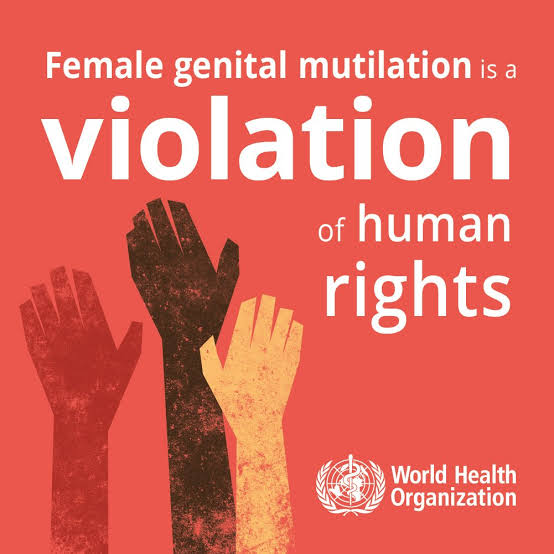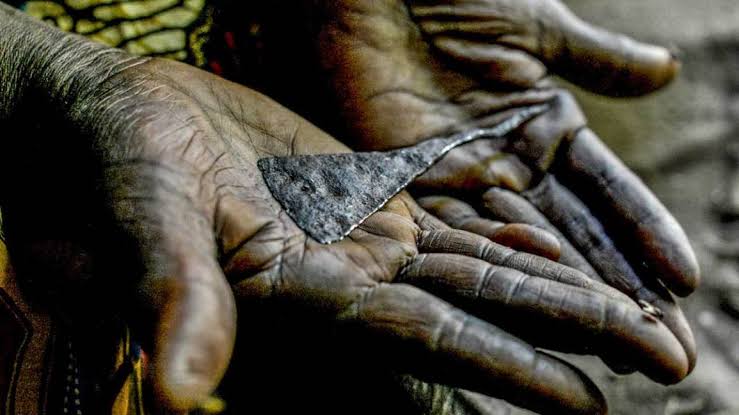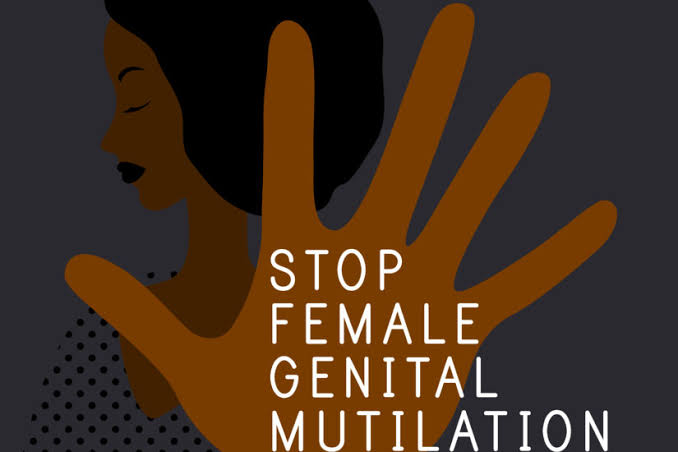By Robert Aseda,
NAIROBI, Kenya, Feb 6- Kenya joins the rest of the world today in marking the International Day of Zero Tolerance for Female Genital Mutilation, the day set aside by the UN General Assembly to amplify efforts to end the harmful practice.
This year’s theme “No Time for Global Inaction, Unite, Fund, and Act to End Female Genital Mutilation” is particularly relevant and urgent as the COVID 19 pandemic threatens to reverse gains made.
Whereas there has been a tremendous success in the fight against FGM due to the development and implementation of laws and policies on FGM, research, and learning, the vice continues to soar, putting young girls and women at risk of severe pain, excessive bleeding, and shock, swelling of genital tissue, infections, urination problems, mental health problems, and even death.
Kenya is among the countries in the world where the practice is most prevalent despite these effects and no medical value of the practice.
According to the 2014 Kenya Demographic Health Survey (KDHS), the prevalence of FGM among women aged between 15‐49 in Kenya is about 21 percent roughly translating to about 2.75 million girls and women who have undergone the cut.
However, this is not uniform across the country as certain areas have more prevalence. The North Eastern part of Kenya for example has a prevalence of over 98 percent while the western region has a low of 1 percent.
The Kenyan government has signed and ratified international and regional instruments that address FGM and other harmful practices including the Convention on Elimination of All Forms of Discrimination Against Women (CEDAW), the Convention on the Rights of the Child (CRC), the African Youth Charter, the African Charter on Human and People’s Right, the Protocol to the African Charter on Human and Peoples’ Rights on the Rights of Women in Africa among others.

In 2011, the Kenyan government enacted the Prohibition of FGM Act that outlawed FGM, set the consequences of performing the act, and established the Anti-FGM Board, the semi-autonomous government agency to coordinate anti-FGM activities. Since then, Kenya has witnessed a substantial drop in incidences of FGM.
However, it is not enough, and the fight must go on till every girl is free from this harmful practice.
The COVID 19 pandemic and the government measures to manage the pandemic including the closure of schools and rescue centres has made girls more vulnerable as community members and cutters connived to conduct FGM in secrecy buoyed by the fact the girls had nowhere to report as they as teachers, civil society and other caregivers were nowhere within sight.
During the Nairobi Summit on ICPD25, to mark 25 years of implementing the highly ambitious International Conference on Population and Development Programme of Action (PoA) that recognized sexual and reproductive health and rights as an inalienable human right, the President of Kenya committed to ensuring zero sexual and gender-based violence and harmful practices, including zero child, early and forced marriage, as well as zero female genital mutilation by 2022.
However, barely a year to go to the deadline, the white smoke isn’t anywhere in sight.
Whereas this is indeed disheartening, we must not give up.
The International Day of Zero Tolerance for Female Genital Mutilation gives us an opportunity to rejuvenate our efforts to ensure that Kenya is a society free from female genital mutilation.

We must redouble our efforts to ensure that all stakeholders are meaningfully engaged.
Ending FGM is not just a government agenda, civil society, private entities, media, academia must all be involved. Multisectoral coordination and support is critical in harnessing support and synergies in the fight against it.
State actors, law enforcement, security apparatus, the judiciary, treasury, religious and cultural leaders, community members including boys and men all have a critical role to play and must work together, in a coordinated manner.
Yet, the single constituency which has the biggest role to play is often ignored and pushed to the periphery.
Young people, especially girls and young women must be at the center of the conversation. Being the most affected by the cut, having creative and innovative ideas and being a critical mass is just but some of the reasons why they should be at the centre.
We must also be vigilant of emerging practices that threaten the journey to Canaan. Medicalization of FGM, where the cut is done in hospitals and by health officers, is just but one such trend. According to estimates from demographic and health surveys and multiple indicator cluster surveys, Kenya is among the countries where this phenomenon is most prevalent.
Cross border FGM where Kenyans travel to neighbouring countries more lenient to FGM and the performance of the cut to very young girls to avoid scrutiny are other emerging trends we must keep our eyes on.
As we mark the International Day of Zero Tolerance for Female Genital Mutilation, we must, as a country, be willing and ready to redouble our efforts to ensure that we protect our girls, families, and societies from the devastating effects of the cut.
The author is the Programme Manager, Policy and External Relations at the Network for Adolescents and Youth of Africa (NAYA KENYA), an organization committed to strengthening the meaningful participation of young people in advocacy for sexual and reproductive health and rights for all young people. www.nayakenya.org Twitter @NAYAKenya Facebook: NAYA Kenya
Want to send us a story? Contact Shahidi News Tel: +254115512797 (Mobile & WhatsApp)


